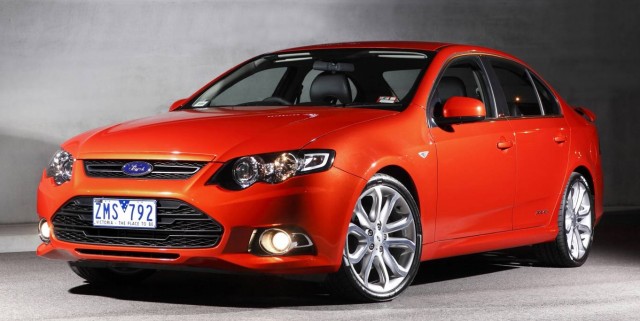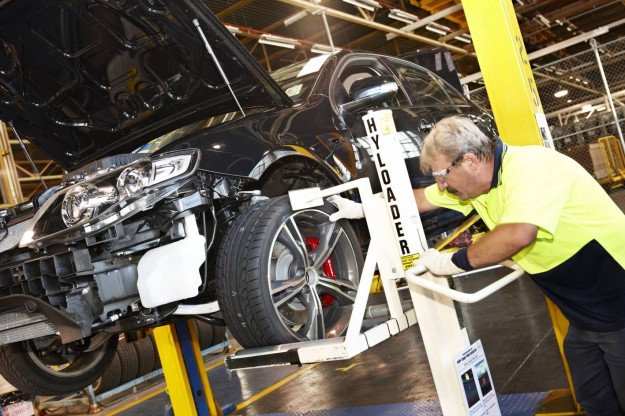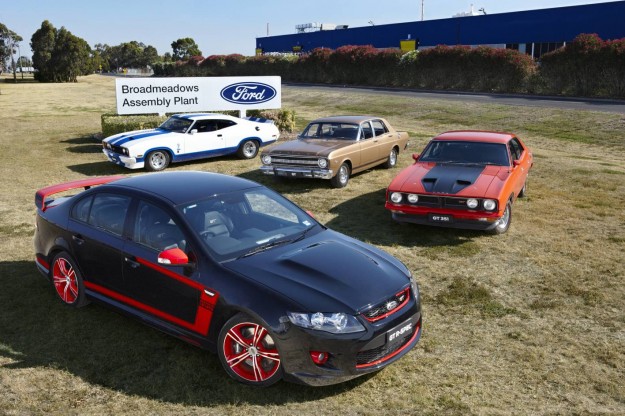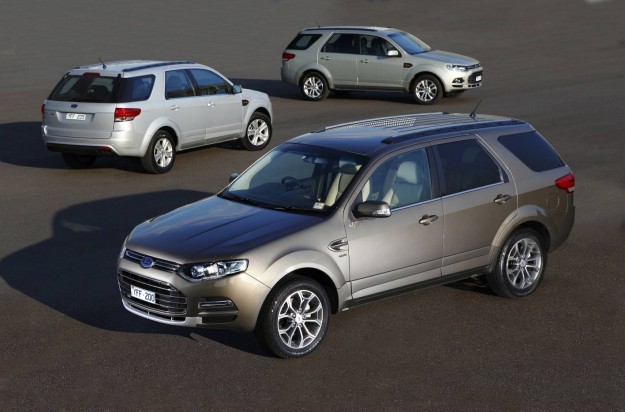
Ford Australia has confirmed it will end local vehicle production in October 2016, signalling the death of the Ford Falcon and Territory and the loss of 1200 Victorian jobs.
Ford Australia president and CEO Bob Graziano said rapidly declining sales of the Falcon large car and the increasingly challenging economic conditions of the Australian market forced?the decision to wind down the company's local manufacturing operations.
"Given the fragmented marketplace and the low model volumes that result, we decided that manufacturing locally is no longer viable," Graziano said.
"The decision we announced today was not made lightly and we understand the very real impact that this will have on our team. We came to this conclusion only after thoroughly reviewing our business and exhausting all other alternatives."
The revelation from Graziano followed the announcement of?a $141 million loss for Ford Australia in the 2012 financial year, contributing to losses of more than $600 million over the past five years.
The CEO said approximately 650 jobs will go from the Broadmeadows assembly plant and roughly 510 from the Geelong engine plant when production ceases in roughly three and a half years' time.
While Ford Australia plans to make every attempt to find new employment for the redundant workers, Graziano admitted "opportunities will be limited" within the import-only organisation.
"We know this announcement is very difficult, especially for our employees," he said. "Providing support to those in our team whose roles will be affected is a key priority for us during this three-year transition period."
He promised Ford Australia was committed to looking after its outgoing workers, confirming that they will receive the full entitlements of their current employment agreements when the wind down occurs in 2016.

Graziano insisted Ford would continue to have a strong presence in Australia beyond the plant closures, stating its commitment to enduring as a centre for excellence in product development as part of the global Ford Motor Company network, with 1500 workers to remain employed in non-manufacturing roles.
Graziano said Ford Australia would forge ahead with its plans to update the Falcon, Falcon Ute and Territory in 2014, adding that they will be the best vehicles ever produced by Ford in this country.
"Ford vehicles have been part of the automotive landscape in Australia for almost 110 years and we have manufactured here since 1925. We are proud of that history. We are proud of our role in Australia and we haven't made this decision lightly," he said.
"Overall, we are changing, but our commitment to Australia remains strong. We'll move through this transition and continue to be a vibrant and strong part of the Australian driving experience."
He admitted, however, that the Falcon name was inextricably linked to local manufacturing, and would therefore be retired in 2016 after 56 years.
Graziano would not comment on the future of the company's in-house sports car division, Ford Performance Vehicles, although the low-volume Falcon-based manufacturer is expected to close its doors alongside Ford Australia's manufacturing plants.

The CEO was insistent that Ford had taken every possible step to make a sustainable business case for local vehicle manufacturing before reaching its decision.
"Despite these efforts, our locally made products continue to be unprofitable while our imported products are profitable," Graziano said.
"In a search to improve scale and competitiveness, we've explored what export opportunities might be available to us, but we are still faced with the fact that our cost structure in Australia remained uncompetitive. Our costs are double that of Europe and nearly four times Ford in Asia.
"We also modelled some pretty aggressive assumptions about government support and labour costs, some of which we did not think would be palatable to any government or the Australian taxpayers, but we did not want to leave any stone unturned.
"Even with these assumptions, the business case simply did not stack up, leading us to the conclusion that manufacturing in Australia is not viable for Ford in the long term.
"Although parts of it are difficult, this transformation will allow us to better align our products and services with what our customers want, and for us to continue to be successful here in Australia."
He said part of Ford's commitment to Australia was to strengthen its range of imported vehicles, revealing plans to increase by 30 per cent the number of new vehicles offered to Australian customers by 2016.

Falcon sales have been in steady decline for the past decade. Ford sold 95,967 locally manufactured large cars across the country in 2003 (including Falcon sedan, wagon and ute variants and long-wheelbase Fairlane and LTD models) – representing more than three quarters of the brand's total sales.
Last year, it sold just 19,769 Falcon sedans and utes (the other variants were discontinued last decade), accounting for slightly more than one-fifth of its total sales.
The one bright light for Ford Australia has been the Territory SUV, which last year overtook the Falcon sedan with 14,646 sales, up 5.6 per cent on the previous year, though its modest increase means little in the context of the company's dire position.





